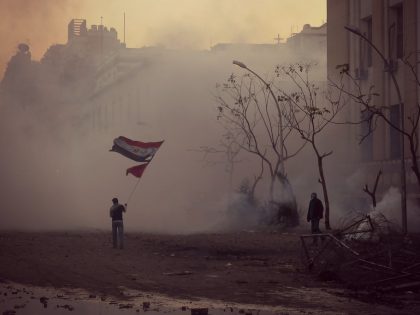
AFCON is decolonization
On this episode of AIAC Talk, Will Shoki and Sean Jacobs discuss the history and politics of the African Cup of Nations football tournament.


On this episode of AIAC Talk, Will Shoki and Sean Jacobs discuss the history and politics of the African Cup of Nations football tournament.

In November 2017, Robert Mugabe was toppled in a coup. Amid this epochal change, life—and cricket—simply went on for Zimbabweans, who are still in search of a better future.

South African cricket is currently the subject of TRC-style hearings into the racism and nepotism in the game. It makes for riveting TV, but focuses too much on individual instances of racism and discrimination.

In the collective consciousness of global football, Zaire and Haiti—which both qualified for the 1974 World Cup—are remembered for their dismal performance. But is this legacy justified?

Springbok rugby projects itself as progress, but preserves the way things are in the popular consciousness of South Africans.

A homage to a true pan-African athlete-activist, Lee Evans, who at the Olympics Games in 1968 broke the 400-meter world record and embarked on a life of political activism.

The British and Irish Lions tour of South Africa, in the middle of a pandemic, exposes the professional sports system for what it is.

Eric “Bucs” Damons existed beyond the frame of the narrow scope of the elite South African sporting narrative.

South Africa failed to qualify for the 2022 African Cup of Nations in Cameroon and has failed to qualify for the World Cup since 2002. What else can their long suffering fans endure?

AIAC Talk this week: the historical entanglement of South African football with English football, and what that tells us about politics and sport. Watch it on our YouTube channel.

Trevor Madondo achieved a certain immortality in Zimbabwean cricketing lore precisely for the way in which he confronted cricket’s history as an instrument of empire.

For the peripheries and proletarians of the world—most of the world—Maradona is a symbol of defiance against the football aristocracy, corporate bosses and empire itself.


The Liverpool striker, Sadio Mane, carries the values of his boyhood home, Bambali, with him. But his football is a product of the European professional game.

What can the Senegalese Sadio Mane’s story tell us about the marketing of dreams.

A new documentary about Liverpool FC striker, Sadio Mane, is watchable, but suffers from the fallacy that sports and politics don’t mix.

Raja Casablanca's fan clubs are well organized, politically active and occasionally violent.

Recreational soccer in New York City offers significant social, cultural, and sometimes economic support for the African diaspora, one of the fastest growing immigrant communities in the city.

The author of a book on football and revolution in Egypt gives us a list of must reads on football in the Middle East and North Africa.

What the recent World Rugby Sevens Series global championship reveals about national rugby cultures, particularly South Africa's.